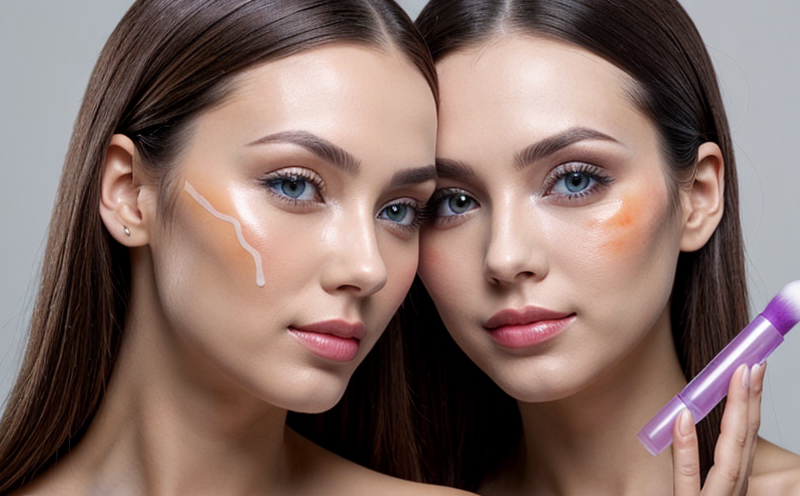Mascara Stability Testing
Understanding the stability of mascara is crucial in ensuring that cosmetic products meet regulatory standards and deliver consistent performance. Cosmetic chemical content testing focuses on identifying the presence and concentration of specific chemicals within a product, which can impact its shelf life and safety. Mascara stability testing involves assessing various factors such as viscosity, color intensity, formulation integrity, and microbial growth over time to ensure it remains safe and effective for consumers.
Stability tests are conducted under controlled environmental conditions that mimic real-world storage scenarios. These include temperature, humidity, light exposure, and even shelf life evaluation. The purpose is to determine how well the mascara retains its properties and safety profile after extended periods of use or storage. This testing helps manufacturers identify potential issues early in the product lifecycle, allowing for necessary adjustments before final formulation approval.
Key aspects tested during mascara stability include:
- Viscosity Changes: Measuring changes in viscosity can indicate whether the formula has become too thick or thin over time. This is important because a significant change could affect application and user experience.
- Color Intensity: Maintaining consistent color intensity ensures that consumers receive products that match their expectations consistently throughout the product’s shelf life.
- Formulation Integrity: Assessing whether there are any physical changes to the mascara, such as sedimentation or separation. Such changes could compromise the efficacy and safety of the product.
The testing process also involves monitoring for microbial growth through appropriate sampling techniques and laboratory analysis. Microbial contamination can lead to health risks if not controlled properly during manufacturing and storage processes. By incorporating these tests into their quality assurance protocols, companies can ensure they are delivering safe and effective mascara products.
Benefits
Conducting mascara stability testing offers several advantages to cosmetic manufacturers:
- Promotes Consumer Trust: By ensuring that your product maintains its quality and safety over time, you build trust with consumers who expect consistent results from their purchases.
- Enhances Product Lifecycle Management: Identifying potential issues early allows for timely interventions which can prevent costly recalls or withdrawals from the market later on.
- Saves Time and Resources: Early detection of problems reduces the need for extensive troubleshooting post-launch, saving both time and money associated with rework or redesigns.
Why Choose This Test
There are several compelling reasons why choosing mascara stability testing is essential:
- Regulatory Compliance: Many countries have strict regulations regarding cosmetic product safety and efficacy. Ensuring that your products pass rigorous stability tests demonstrates compliance with these requirements.
- Informed Decision Making: Stability data provides valuable insights into the behavior of different ingredients within a formulation, helping researchers make informed decisions about ingredient selection and concentration levels.
- Quality Assurance: Regularly performing stability tests ensures that every batch produced meets high standards, thereby maintaining brand reputation and customer satisfaction.
Competitive Advantage and Market Impact
Stability testing plays a pivotal role in gaining competitive advantage and influencing market impact:
- Market Leadership: Companies that invest in comprehensive stability testing programs position themselves as leaders in quality control. This can attract more customers, particularly those seeking premium brands known for exceptional product performance.
- Innovation Opportunities: Understanding how products behave under various conditions opens up opportunities for innovation. For instance, learning about ingredient interactions at different temperatures might inspire new formulations or packaging solutions designed to enhance shelf life further.





